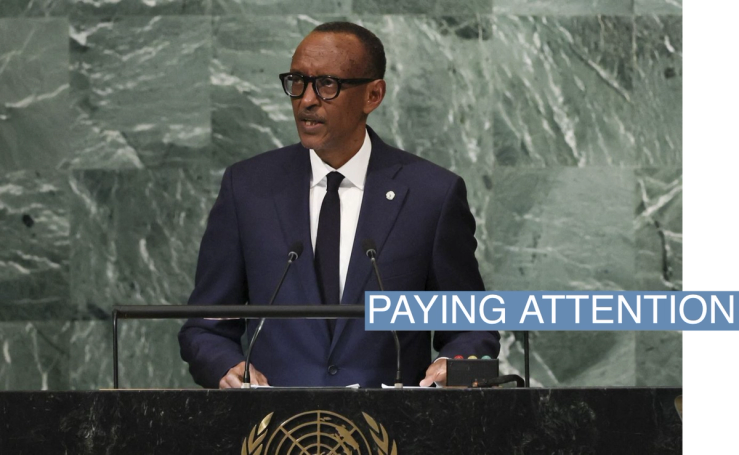The Scoop
United States lawmakers are urging the secretary of state to brief Congress on Rwanda’s alleged human rights abuses and role in the conflict in the neighboring Democratic Republic of Congo.
The language is included in an explanatory statement accompanying the fiscal year 2023 appropriation bill for the State Department released as part of a larger funding package earlier this week. It calls on Antony Blinken to brief congressional committees on Rwanda’s “abuse of the judicial system” to “silence critics” of its government. They also identified “arbitrary and incommunicado detention, mistreatment of prisoners, coerced confessions, lack of due process, and unfair trials,” among the issues of concern.

The issue of detention and mistreatment of prisoners is seen by some on Capitol Hill as the latest attempt to pressure Rwanda over the detention of Paul Rusesabagina, the Rwandan activist made famous by the movie “Hotel Rwanda”. Rusesabagina, a long-time critic of President Paul Kagame, was arrested in Rwanda’s capital Kigali in August 2020 after being lured onto a flight he was told was going to Burundi.
Rwandan government spokesperson Yolande Makolo, in a statement responding to the calls for fresh scrutiny, said the administration is “proud of the enormous progress Rwanda’s justice system has made” since being rebuilt after 1994’s genocide.
In August, Blinken brought up the issue of “wrongfully detained” Rusesabagina in his visit to Kigali. But speaking at the Semafor Africa Summit last week, Kagame pushed back at what he described as an attempt to “bully” him into releasing Rusesabagina.
Rwanda is also highlighted in Congress’ statement about violence and instability in eastern DR Congo. It calls for an “assessment of the support provided by Rwanda to the M23 rebel group and the impact of such support on civilian populations and stability in the region.” Rwanda has repeatedly denied culpability for misdeeds in the sub-region.
In this article:
Yinka’s view
US-Africa policy watchers on Capitol Hill and beyond are paying attention to these statements even while accepting there is some debate over what they mean in the longer term.
On the one hand, they aren’t legally binding or new policy, it doesn’t officially change anything in real terms when it comes to U.S.-Rwanda relations. But as one Africa policy wonk on the Hill told me “it would be unwise to think Rwanda can just ignore this”. That’s because even though most of these statements end up seeming pretty procedural they do show what U.S. Congress is particularly concerned about and are often the first step in influencing future legislative decisions by simply keeping issues like the detention of Rusesabagina — a U.S. resident — near the top of the State Department’s Africa agenda. This is after a long period where negotiations were quietly ongoing behind the scenes with little movement.
“It’s a signaling device to the Rwandan government that Congress is watching,” said Joshua Meservey, Africa analyst at the Heritage Foundation think tank in Washington. “It could pave the way for future legislative action on the issue if the reporting is sufficiently worrisome to inflame Congressional members.”
The criticism adds to a sense that there is a widening divergence on how the U.S. and Rwanda see the same issues.
Room for Disagreement
One veteran watcher of US-Rwanda affairs dismissed the notion that these congressional statements might influence matters in the region. Speaking to Semafor on condition of anonymity, due to sensitivities around imprisoned critics and the eastern DR Congo conflict, they described the statements as “pretty routine.” They said the statements simply allowed certain Congress members to keep some of their primary Africa issues on the agenda without necessarily affecting legislative decisions.


